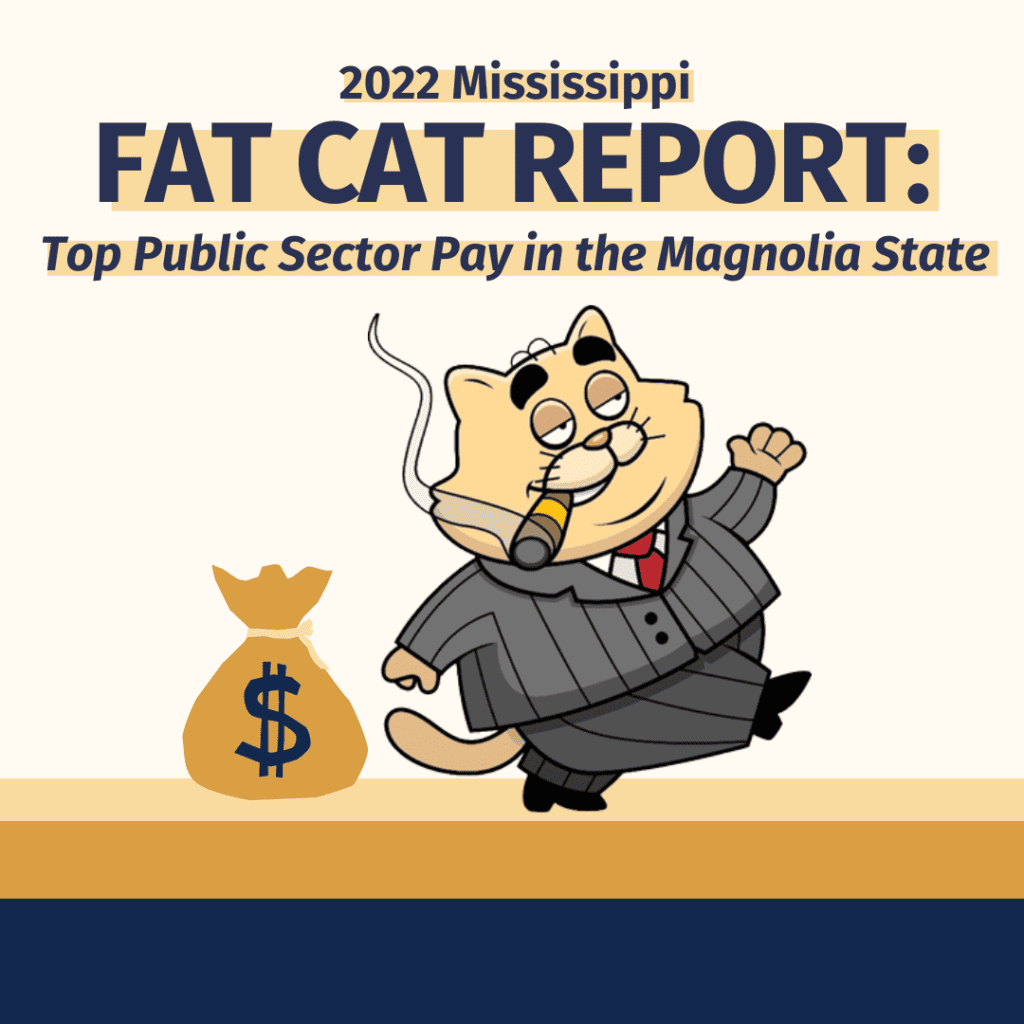The Biden administration is seeking to “cancel” student debt by transferring what individual students owe to the American taxpayer.
Opponents question why Americans who never graduated from college, and had none of the attendant benefits of a degree, should pick up the tab for those who did. Defenders of the Biden order counter with the observation that tens of millions of young Americans are weighed down by debts they may never be able to repay.
What both sides ought to ask is why we are sending so many young Americans to take college degrees in the first place. If students really are struggling to pay off college debts, does that not raise some fundamental questions about the value of what they are being taught?
More and more young Americans are, it seems, questioning the value of a college degree. Today, only 42 percent of Americans aged 18-24 are enrolled in college or graduate school. That figure represents a significant drop since 2010 when the percentage attending college peaked.
More does not mean better when it comes to university, and if anyone in America is in doubt, he should look across the Atlantic at the British experience.
In my native Britain, a mere 15 percent of young Brits went to college or university in 1980. Since then, it has been the objective of every UK government to encourage more people to go to university.
By 1990, one in four were going to university. 20 years after Prime Minister Tony Blair set a target of having half of all young people attend, that target was reached in 2019. Today, almost 60 percent of young women in England pursue higher education.
Having so many studying at university sounds impressive. But the rapid expansion of higher learning has come at a price. It is often the students themselves who pay that price through large debts and degrees that don’t always add much value.
UK universities have become big businesses, and their business model has been to borrow to expand. In order to accommodate the 2.6 million students now in higher education, there has been a sustained building boom around university campuses over the past couple of decades, with lots of gleaming new buildings.
The borrowing binge British universities have been on has seen vast debts run up against a flow of revenue that schools expect to receive from students taking out state-subsidized loans.
Almost £20 billion of these state-backed loans are made to students in England each year (the figure is even higher if students in Scotland, Wales, and Northern Ireland are included). The value of outstanding loans at the end of March 2022 reached £182 billion and is expected to be around £460 billion (at current prices) by the mid-2040s.
UK universities have expanded by taking on debts. These debts are themselves serviced by state-backed debts taken on by students. It’s a house of cards built on IOUs, and one that is so precarious that, according to a recent report by the Institute of Fiscal Studies, a dozen or more British universities might soon find themselves insolvent.
As the cost of borrowing increases, it is only a matter of time before some British universities start to ask for the government to bail them out. I wonder if all those brand-new student accommodation buildings that have sprung up will be housing students in a decade or so.
In order to maximize revenues, many UK universities have resorted to trying to attract ever larger numbers of overseas students, whom they can charge higher fees. For some overseas students, paying those fees, almost irrespective of the quality of the education they get, is a price worth paying as a means of migration. American universities have seen a dramatic increase in overseas student numbers for similar reasons.
Dramatically expanding the number of universities in Britain has made many of them degree factories. Courses consist of modules, in which students are instructed on what to think, rather than necessarily how to think. Perhaps this is inevitable, given the sheer volume of students that universities now process.
The rise of degree factories has meant more standardization of higher education, not least the standardization of thought. The romantic notion of a university is that it is a community of free thinkers, cheerfully pursuing scientific and intellectual inquiry. Many British universities are very different from that.
Many UK universities have become cheerless institutions in which standardized thinking is rigorously enforced. In one British university recently, a feminist academic was driven from her post by the relentless hounding of balaclava-clad students who accused her of “transphobia.”
Leftist dogmas, prevalent among university faculty, have become long-established campus orthodoxies. Critical Race Theory and ideas about intersectionality influence how many liberal arts and humanities courses are taught.
It is not only in the humanities where standards have suffered. In some science departments at some British universities, scientific empiricism seems to have given way to what one might call “inductivism.” That is to say, observations are made, a general theory is formed, then more observations are made supposedly justifying that theory. The result has been an endless succession of university-backed “scientific” models, on everything from climate change and Covid to the economy and inflation, that proved to be spectacularly wrong.
A big part of the problem is that university expansion in Britain has not been accompanied by effective consumer choice. With state subsidies and state-backed loans, students are not paying the true cost of their education. The system lacks the discerning customers (students) needed to ensure that the suppliers (universities) deliver a quality product.
British universities, in common with most of their American counterparts, have a number of academics on tenure. This makes it almost impossible to remove them unless, of course, they transgress from campus orthodoxies. Worse still, perhaps, the system of accreditation focuses on processes rather than the value of degrees.
Many British universities have become state-subsidized degree factories, churning out mediocre credentials that do little to equip students for what comes next. Perhaps it would be no bad thing if the number of students enrolling in universities fell, in America as well as in Britain.
Douglas Carswell is the President and CEO of the Mississippi Center for Public Policy and is a former Member of the British Parliament.
Mississippi’s free-market think tank, the Mississippi Center for Public Policy, won two national awards at the State Policy Network annual conference in Atlanta yesterday.
- 1ST AWARD - “Biggest win for Freedom” award: Earlier this year, Mississippi passed historic tax reform, with the Mississippi Tax Freedom Act. The change cut the state income tax and gave 1.1 million Mississippians a tax break. In recognition of MCPP’s role in achieving this landmark reform, MCPP was given the “Biggest Win for Freedom” Award, jointly with Empower Mississippi.
"Mississippi has historically had a high tax burden and slow growth," said Douglas Carswell, MCPP’s President & CEO. "Our campaign to cut the state income tax is helping to change that."
"We won this award for the work we did to bring key people and organizations into alignment, found common ground for carefully costed state income tax cuts, and at the same time built popular support for the idea.”
- 2ND AWARD - SPN Network Award: In recognition of our effort to overturn the Biden administration’s vaccine mandate, our litigation division, the Mississippi Justice Institute, won the SPN Network Award. We were given the award jointly with a number of other think tanks, including the Texan Public Policy Foundation and Louisiana’s Pelican Institute.
"We are honored to be recognized alongside so many esteemed constitutional litigation centers," said MJI director, Aaron Rice, who helped lead the fight. "We will continue standing up against government overreach and protecting constitutional rights at every opportunity."
The State Policy Network supports a movement of over 60 independent think tanks across America and has over 90 partners. At this year’s conference, SPN gave out five awards. MCPP was a finalist in three of the five categories, going on to win in two.
"It is wonderful that MCPP was a finalist in three of the five categories," Carswell said. "But we like to win for Mississippi, so it was wonderful to go on to actually win twice.
"Mississippi has been one of the poorest states in America for as long as anyone can remember," Carswell said. "MCPP exists to try to change that, and we believe we will only change that by achieving big, strategic changes that improve decades of public policy failure."
"These awards show that MCPP is an effective vehicle for change," Carswell said. "We are helping to drive the far-reaching change that Mississippi needs. Now we want to try to achieve big, strategic wins in improving education and healthcare in our state, too."



An American city of 150,000 people is without running water. Pumps at the main water treatment plant in Jackson, Mississippi failed this week. Low water pressure means that many homes and businesses can’t even run the taps. Those that are getting a trickle are advised not to clean their teeth with it, let alone drink it, since it is likely contaminated.
How did this happen?
Jackson city leadership would like you to think it has something to do with all the recent rains we have had here in Mississippi. Speaking somewhat cryptically at a recent press briefing, Jackson’s mayor, Chokwe Lumumba, said the water-treatment facility had been “challenged, as it relates to these flood levels”. Putting the blame on the rain, he went on to say that the city’s water administration was trying to “figure out how they contend with that additional water that is coming in”.
Officials in neighboring towns and cities, such as Madison, Flowood and Clinton, managed to figure out how to supply residents with clean water despite having just as much rain.
Unless the laws of physics are different in Jackson, the only logical conclusion one can draw from this fiasco is that Jackson’s water problems are a consequence of systemic mismanagement.
Two thousand years ago, the Romans figured out how to supply a city with running water by putting it in pipes. Jackson today seems to be struggling to master this technology.
Key water treatment plants in the city did not employ qualified personnel to run them. Now they have stopped running. What did city authorities think would happen?
For years, city authorities have underinvested in Jackson’s water infrastructure, to the point where it is now falling apart. This, some will be quick to tell you, is because of a lack of money. But why is there not enough money?
In 2017, Jackson’s water billing system collected $61 million in revenue, and the operating costs of the city’s water system were about $54 million. That left a healthy surplus that competent management might have allocated to meet maintenance costs.
This year, the amount of revenue collected is likely to be closer to $40 million, far below running costs. Not only is there no surplus to go towards maintenance, there does not seem to have been much maintenance even when there was a surplus.
How on earth does a city water authority manage to lose almost a third of its revenue in the space of five years? In large part because the city authorities have not collected revenue since they have lacked an effective water billing system.
Several years ago, Siemens was contracted to create a new billing system, while at the same time upgrading much of the city’s dilapidated water infrastructure. That arrangement ended with Siemens being sued by the city for $89 million.
Was that large dollop of Siemens’ money given to the city used to improve Jackson’s water system? Twice as much was spent on attorneys ($30 million) as went to improve Jackson’s water and sewage system ($14 million).
Given what happened with Siemens, I worry that Jackson might not be able to find a contractor willing to undertake the herculean task of fixing the city’s water supply, even if the money could be found. I also suspect that any large outside contractor prepared to undertake the task may want to ensure that they were free to subcontract with their preferred partners on the basis of value, and not to be subjected to various ‘contract rules’ on the basis of politics.
Without some sort of outside support, Jackson’s water crisis will not be resolved. Our’s may become the first state capital in America where it becomes impossible for residents to take a daily shower.
At the state level, Mississippi’s Governor Tate Reeves, who lives in Jackson, has stepped in. He has taken on the task of providing emergency water distribution to local residents – and offering state money to pay for half of it.
The federal government also seems keen to help out. President Biden specifically mentioned investing in Jackson’s water system, during the passage of the Infrastructure Bill. But as Representative Bennie Thompson has sensibly suggested, for the federal authorities to step in “the city to come up with a plan”. Representative Thompson is right.
The federal and state authorities seem willing to act. The key question is whether Jackson’s city leadership is willing to let them come in alongside.
Douglas Carswell is the President & CEO of the Mississippi Center for Public Policy. He lives and works in Jackson.
Mississippi might be one of the poorest states in America, but we manage to produce plenty of overpaid officials - and these ‘Fat Cats’ are getting fatter.
The Mississippi Fat Cat report is a list of the fifty highest-paid public officials, which we publish every year. Our report reveals some shocking truths about public sector pay.
Did you know, for example, that the school superintendent of Tupelo (7,005 students) is paid more than the governor of Texas (population 28 million)? Or that the D-rated McComb school superintendent makes more than the governor of Florida?
Mississippi’s 50 highest-paid public officials make (I hesitate to use the word ‘earn’) more than the 50 governors of the US states.
Worse, the Fat Cats are getting fatter. Our report reveals that top public sector salaries in our state are rising faster than the salaries of the average Mississippi government employee, and a lot faster than the salaries of ordinary workers in the public sector.
From gas to groceries, the cost of living is rising fast. Since the salaries of many Mississippians are not increasing as quickly, many are likely to see a decline in their household income. I don’t imagine this is quite such a problem for those public officials who have been awarded above-inflation pay raises.
Of course, higher salaries for Fat Cats means fewer nurses, teachers and police. Our report calculates that the combined salaries of Mississippi’s 50 Fat Cats could pay for an additional 194 nurses, 232 state troopers or 228 teachers.
The aim of our report is not to criticize every highly paid public official. Some are paid to do demanding jobs requiring specialist medical and legal skills that generate a lot of public good. Top performing school district superintendents may be worth every dollar. But there seem to be an awful lot of highly-paid public officials that preside over some pretty awful public service outcomes.
Our report show that there is little correlation between what top bureaucrats are paid, and their performance. Many of the worst-performing school superintendents seem to enjoy inflated salaries.
Every time there is a public debate in Mississippi about how to improve public services, it rapidly becomes a conversation about how many more federal dollars we need to throw at the problem and how much more public money we should spend. Our report suggests that this is the wrong approach.
With a $1.4 billion surplus in the state budget, there is plenty of money to pay a lot of mediocre officials a lot. The problem seems to be that the money isn’t always spent in the best interests of the public.
Our report lists some practical steps that our lawmakers need to take in order to ensure that there is proper accountability when top public sector salaries are being set. Our lawmakers need to act in the 2023 session to ensure public money is spent more wisely.
Douglas Carswell is the President & CEO of the Mississippi Center for Public Policy. A copy of the Mississippi Fat Cat report 2022 can be downloaded from our website mspolicy.org/publications/the-2022-mississippi-fat-cat-report/.
The Mississippi Center for Public Policy released its annual Fat Cat Report this week, providing the public with a list of the state's highest-paid officials.
Mississippi’s 50 highest-paid public officials make more money than all 50 of America’s state governors, according to a new report published by the Mississippi Center for Public Policy.
The Mississippi Fat Cat report, an annual overview of the highest-paid public officials in the state, published today, shows that Mississippi’s “Fat Cats” are getting fatter and receiving large pay increases. Top public-sector official pay grows twice as fast as other public-sector workers' pay. For example, the superintendent of the Humphreys County School District saw a 102-percent salary increase from last year, making the payment from a little less than $90,000 to now $182,000.
"The public has a right to know how public money gets spent," explained Douglas Carswell, President and CEO of the MCPP. "Our report shows that salaries for top public officials in our state are rising fast. The Fat Cats are getting fatter."
Mississippi’s 50 highest-paid Fat Cats make more than America’s 50 state governors. More Fat Cats means fewer nurses, teachers and police officers, and these high-paid officials are largely unaccountable, with only four of the 50 being elected. School district superintendents dominate this Fat Cat list.
Of the 50 highest-paid public officials, 26 are school superintendents, many from the worst-rated districts. For example, Claiborne County School District’s superintendent makes a little over $200,000. While some superintendents oversee thousands of students and carry out demanding tasks, Claiborne County has an F rating with only 1,326 students.
Many of our state's Fat Cats are largely unelected. Of the 50 salaried positions, only 4 are elected, with the remaining 46 being appointed. The only directly democratically accountable officials on our list are judges.
To combat the excessive spending, MCPP listed several policy proposals in its report to hold public officials accountable, including legislative-approved salary increases, salary formulas for superintendents, amending the Mississippi code and capping public sector pay to that below the governor's pay.
"In summary, the report shows that government waste does not happen in a vacuum," Carswell said. "An overpaid bureaucrat is ultimately feeding off the pocketbooks of citizens. It’s time to put the Mississippi Fat Cats on a diet of lower salaries so that taxpayer dollars can be protected from waste."
A link to the report can be found here.

Fifty-one years ago this week, Richard Nixon made the most consequential decision of his presidency – and it had nothing to do with Watergate.
On August 15th 1971, Nixon announced that the US dollar could no longer be converted into gold. Up until that moment, the dollar was pegged to gold at $35 per ounce under what was called the Bretton Woods System. This international agreement committed the American government to back every dollar overseas with gold.
“Big deal”, you might say. “What has some distant decision got to do with today?” Quite a lot, actually. It explains why government is big, inflation is high, capitalism is corrupted and why young Americans are voting left.
For as long as dollars could be converted into gold, there was a limit on the number of dollars that the US government could put into circulation. Why? Because someone might come along with dollars and ask to exchange it for gold. Once dollars could no longer be converted into gold, the US government was free to create as many dollars as it liked.
This is pretty much what has happened ever since.
Following Nixon’s announcement, the only thing restricting the amount of dollars that the government creates is the government. And governments, sadly, are not very good at saying "no" to themselves.
This has produced persistent inflation. Even before the latest price increases, there has been more inflation over the past half-century than in all the previous history of the American Republic, including the Civil War and two world wars.
The amount of money in circulation has increased rapidly since Nixon made his announcement. Indeed, the past three years have seen an unprecedented surge in the number of dollars out there.
The United States was founded by rebels demanding “no taxation without representation”.
Thanks to Nixon’s decision, in order to raise revenue today the US government does not need permission from our representatives in Congress to raise taxes. They can simply borrow instead.
The US government has had a budget deficit on 47 of the past 51 years. Now that the dollar is merely a paper promise, issued by the Fed, the federal government is able to borrow almost at will. I imagine George III would have looked at such a scheme with envy. No need to worry about taxing tea when you can borrow and spend billions at will.
Once the government is free to manipulate the currency to spend what it wants, it is also able to use monetary policy as a tool to steer the economy.
At first, the government only manipulated monetary policy to direct the economy in extreme circumstances, such as when the stock market crashed in October 1987. The US Fed used monetary policy to ride to the rescue. They slashed interest rates to boost spending, cut savings and make shareholding more attractive to investors than holding cash.
A decade later, in the wake of the Asian financial crisis, the Fed did something similar. And then again with the collapse of LTMC, the world’s largest hedge fund. By the time the Fed used monetary stimulus in response to the dot com bubble bursting, or the collapse of Lehman bank, it was almost expected.
When Covid came, monetary stimulus in the form of low rates and QE was not a temporary measure. It had become a constant – but one that has begun to corrupt capitalism.
Years of low-interest rates and artificially easy money has caused all sorts of problems.
Easy money means that asset prices have been inflated. The explosion of asset values benefits those with assets (often older) over those without (the young). (Ever wondered why so many young Americans vote left and say they are skeptical about free-market capitalism?)
Real wages have stagnated. (Ever wondered why blue-collar America often seems so angry?)
You might not be able to see it right now, but an awful lot of bad investments have been made, with many ‘zombie’ companies – firms that are able to service their debts but not pay off the principle.
The ‘Nixon shock’ caught America by surprise in August 1971, but was soon overshadowed by Watergate. Half a century on, it seems that sanctioning a burglary was not the worst decision Nixon made in the Oval Office.
Where does all this leave conservatives today?
If we are serious about reducing the size and reach of government, we cannot remain part of the Greenspan-to-Powell consensus. A future conservative President and Congress are going to have to, at the very least, redefine the Fed’s terms of reference.
Nothing lasts forever, and certainly not paper promises.
(Jackson, MS): The Mississippi Justice Institute's Director, Aaron Rice, receives an award from the Foundation for Holistic Health Education.
Mississippi Justice Institute Director Aaron Rice received an award from the Foundation for Holistic Health Education for his support and dedication to holistic health and its practitioners.
Rice received the award in recognition of his role in bringing a lawsuit that successfully ended Mississippi's practice of requiring weight-loss coaches to have a dietician's license or face jail and fines - even if they did not treat medical conditions or claim to be a licensed dieticians.
"I am honored to receive this recognition on behalf of the Mississippi Center for Public Policy and its legal arm, the Mississippi Justice Institute," Rice said. "We will continue standing up for the right of all Mississippians to earn an honest living in our state."
After Rice won the case against the bureaucratic law, the state amended its regulations to allow unlicensed people to offer non-medical weight-loss advice as long as they do not claim to be a dietitian, allowing more Mississippians the opportunity to make a living and provide for their families.
"Aaron is a tireless advocate for working Mississippians, and we are proud to see him receive this award," said Douglas Carswell, the CEO & President of MCPP. "Because of Aaron's efforts, regular Mississippians have never felt more confident that their constitutional rights will be protected and, if needed, zealously defended."
The Mississippi Justice Institute is a non-profit, constitutional litigation center and the legal arm of the Mississippi Center for Public Policy. It defends the personal, economic and religious liberty of Mississippians in court to ensure that all forms of government are limited to their essential responsibilities as provided by the Constitution and to foster freedom and prosperity in the state.

The Inflation Reduction Act does nothing to reduce inflation. Seldom in America’s history has there been a piece of legislation put before Congress so inappropriately named.
If the Inflation Reduction Act was really about tackling inflation, you might expect it would say something about monetary policy. Nope. Or maybe it would change the Federal Reserve’s terms of reference. None of that.
What the Act does do is spend $739 billion. Add that to the $1.9 trillion that this administration has already spent in the name of COVID recovery, and we’re talking some serious money.
Over half ($369 billion) of the Inflation Reduction Act’s $739 billion spending will go to “fighting climate change”. The Act seeks to reduce CO2 emissions by roughly 40 percent by 2030.
According to an analysis by Princeton university’s Zero Lab, the bill would reduce greenhouse gas emissions by 6.3 billion metric tons over the next 10 years. It would do this by subsidizing a massive increase in solar and wind power production. The amount of energy that the US produces using wind and solar power is set to increase from 15 GW of wind and 10 GW of solar in 2020 to almost 40 GW of wind and 50 GW of solar by 2025 – 26.
“Great!”, I hear you thinking. “America would, at last, be producing lots of cheap, renewable energy”.
It won’t be cheap. Unless the Act is able to change the laws of physics, the cheapest way to generate electricity will remain through burning oil, natural gas or coal. If wind and solar were cheaper, the federal government would not be having to spend billions subsidizing the switch.
Here in Mississippi, energy companies are able to charge consumers what it costs them to produce electricity, plus a profit margin (of about 10 percent). In other words, producers do not really have much incentive to produce electricity as cheaply as possible when they know they can pass the cost on to their captive consumers.
Having the local Public Service Commissioners rubber stamp the price fixing process is no guarantee that it is done in the interests of consumers.
What Biden’s latest boondoggle will do is offer local Mississippi energy companies even more incentive to open solar and wind production plants, safe in the knowledge that they can benefit from the federal subsidies and that they can continue to pass on additional costs to ordinary Mississippi households. Various vested interests must be salivating at the prospects.
“But what about the new jobs the bill will create?” some will ask. Lobbyists for various vested interests in our state will be quick to point out that the Inflation Reduction Act will create thousands of clean energy jobs.
The idea that this Act will ‘create jobs’ is a fallacy. As Daniel Hannan recently pointed out in the Telegraph, back in the mid-nineteenth century Frédéric Bastiat used the ‘broken window’ argument to show that you do not make a town rich by smashing up its shop windows. Breaking all the windows might generate lots of economic activity as the shopkeepers rush to employ every available glazier. But what that would do is merely divert labor and capital from other more productive activity. So, too, with Biden’s new Act, which will divert labor and capital from more productive activity and engage them in activity that is inherently expensive and wasteful.
The Inflation Reduction Act represents another step toward the steady socialization of America.
For the past 20 years, Europe has subsidized a switch away from oil, gas and coal toward solar and wind. Renewables have been subsidized and oil, coal and natural gas production are often outright banned.
Today it is becoming increasingly clear that this has been a disaster. Not only are solar and wind simply unable to generate enough energy to keep Europe warm, what they do produce is hideously expensive. So expensive that much of Europe’s manufacturing plant is likely to have to shut down for periods of the coming months.
At the precise moment Europe’s energy disaster starts to unfold, the Biden administration seems determined to emulate it. America deserves better.
Getting the chance to work at Mississippi Center for Public Policy has been a summer well-spent, to say the least.
My knowledge of the intricacies of the policies that have created our great state has grown tremendously. I have not only learned where our state could improve, but also how these policies need to be implemented, and the exact measures to take.
My knowledge of communications has had a huge learning curve as I was exposed to areas of content creation in the media, political technicalities, and advertising which were entirely new and valuable assets to carry on into my future career, whatever it entails.
I hope that more young Mississippians can get involved with the Mississippi Center for Public Policy, whether it be through the internship program or the new leadership academy which I had the privilege to get to work on these past couple of months. MCPP is well-led, well-researched, and well on track to providing our state with the right policy-based solutions. It was an incredible learning experience for me, and I know that others would be lucky to receive the same tutelage as I did through such efficient mentors.

